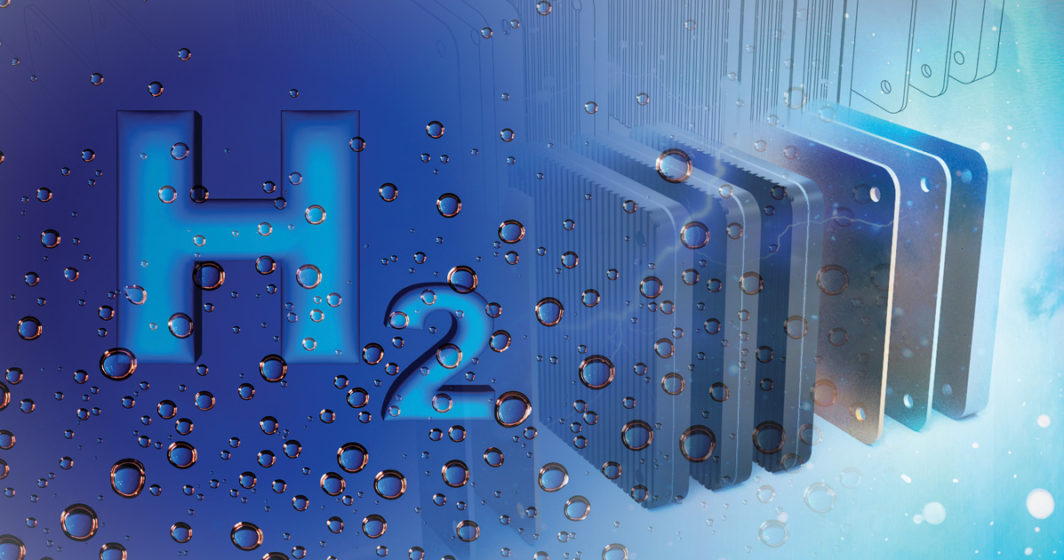It’s 50 years since the plumbing industry was transformed by Australia’s abundant natural gas resources – a shift to hydrogen could take us to another level again, Richard Webb reports.
Right now millions of dollars are being invested at a federal and state level into looking for ways to generate an economically sustainable ‘clean’ Australian hydrogen production industry, primarily to develop an additional clean export industry. The Australian Gas Association (AGA) hosted a well-attended conference late last year focussed on the potential changes that the use of hydrogen gas might mean for our industry.
It’s easy to see why this might be a game changer. Hydrogen can be produced from water, the most abundant resource on the planet, it is highly combustible, and if produced using low or zero carbon emission methods, is a potentially low or zero emissions source of energy. In itself, hydrogen is of course carbon free.

Hydrogen is colourless, odourless, tasteless, non-toxic, non-metallic and produces water when it burns rather than a variety of combustion products when burning natural gas which includes carbon dioxide, a major greenhouse gas contributor.
As natural gas prices climb across the east coast of Australia in particular, renewable hydrogen may be cost competitive to produce too.
On a top level, hydrogen can be a potentially environmentally friendly, cost-effective, abundant replacement for the fossil fuel natural gas - and while it has some significant differences that will require retraining, there is no other industry better placed to manage and service a gas transition to hydrogen if it occurs than the plumbing industry. After all, we deal with combustible gases every day.
Master Plumbers Chief Technical Officer Gary Bath says that if Australia can start to produce ‘clean’ hydrogen at the desired cost, the plumbing industry might well be in a position not dissimilar to the reticulation of natural gas back in the 1970s with the accompanying conversion and installation of new appliances and upgrading of systems.
“There’s also a big economic opportunity for our industry with hydrogen, and it’s based around the economic potential for export, which has already been identified by the Federal Government,” he says.
The production of hydrogen can be a little complex, as, unlike natural gas, it isn’t found naturally - it needs to be extracted somehow, and it is this process of extraction that needs to be relatively ‘clean’ in order for hydrogen to deliver the carbon benefits.
Hydrogen is already used for a wide range of manufacturing and industrial uses such as for fertilizers, petrol refining and methanol production, but it is mostly produced from fossil fuels. However, recent technology breakthroughs have reduced the cost of hydrogen production using renewable energy sources such as solar, wind or hydro-electricity, and this has got everyone excited.
“We can supply hydrogen to other countries, particularly in Asia, because they don’t have the same potential to develop their own supply. We are in the right place and have the resources to economically produce hydrogen for them.”
Assuming that Australia works out how to generate ‘clean’ hydrogen cost-competitively and develop a viable export industry, the potential to reticulate or supply this gas for Australian consumers, what might be the considerations for practitioners in the field?
Firstly, hydrogen has a much smaller molecular structure than natural gas - it is the smallest molecule on the periodic table with an atomic number of one - it has one proton in the nucleus of the atom. It is also the lightest element and reacts differently to certain materials.
Mr Bath says this could change how we might use copper piping for example and we may find that the only suitable piping for hydrogen involves plastics, and that could mean a substantial upgrade to the existing gas piping network. This may also affect the design and materials used in gas appliances.
Hydrogen is a lot more combustible than natural gas - it has a broad flammability limit between 4% and 75% (natural gas is between 5% and 14%). Hydrogen also burns with a clear flame in most situations not the familiar blue flame that we associate with a neutral correctly burning natural gas flame. The increased flame temperature produced by hydrogen (about 260° hotter than natural gas) would also be a consideration.
The above represents significant changes to safety aspects of installation and commissioning of appliances and services using this gas which would require additional training and development for the industry.
Currently, several states are testing what changes might be required by adding additional hydrogen to existing natural gas supplies. Natural gas systems and appliances are being “injected” with up to 10% by volume pure hydrogen gas to test its effect on our current infrastructure under a controlled environment.
So what challenges do we face?
In the 1970s, the government-owned Gas and Fuel Corporation in Victoria had overall management of the natural gas market, so distribution, certification and approval of appliances and the compliance regime was controlled by one government authority. Over the years these roles have been distributed to groups of privately-owned entities, so a transition to a reticulated hydrogen gas supply and the subsequent changes to Standards, changes to installation requirements and training of gasfitters will be far more complicated than they were previously.
Still, global demand for hydrogen is increasing, with increasing exploration of its use as a fuel in motor vehicles, and the International Energy Agency Hydrogen Collaboration Program predicts the global hydrogen market will be worth $US155 billion ($A219 billion) by 2022.
At Master Plumbers, we think a transition to hydrogen will be the biggest change to the gas industry in over 50 years and provides opportunities for a renewable energy future. We plan to keep you regularly updated as this situation develops.
Why hydrogen?
- Produced from water
- Highly combustible
- Carbon-free
- Non-toxic
- Now underpinned by mature renewable production technologies
- Australia has the natural resources for strong export potential
Acknowledgements: Australian Gas Association, www.aga.asn.au
Share this Article






